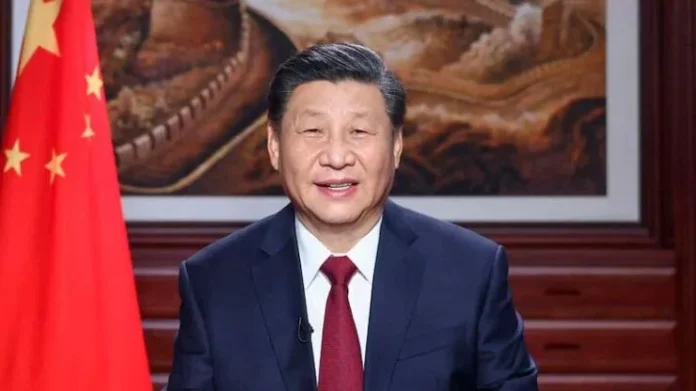Although Pentagon report presents chilling details on China’s military plans and strategy, in the Indo-Pacific region, against the US, Taiwan and India, there is truth that Beijing is going to be a hegemon which thinks of setting the world order according to China’s Communist Party’s ideology and understanding, which wryly stands opposed to democracy and the rule of law.
By 2049, China aims to eclipse the US by becoming a preeminent power–economically, militarily and technologically. It wants to structure the world order as per its own wishes. President Xi Jinping’s address at the 19th Party Congress in October 2017 sheds much light on this aspect. He said by 2049, China would “become a global leader in terms of composite national strength and international influence” and would build a “stable international order” in which China’s “national rejuvenation” could be fully achieved.
This is really alarming for international community members who pivot their meaningful survival as per a system framed around non-authoritarian democratic values, principled world order and multilateralism.
Whether the world takes note of it or not, China is on the march to its goal. It can be seen in China’s naval shipbuilding program that it is rolling out at amazing rate; its effort to control existing international institutions and build new ones; its projection of military power in the Arctic and Indo-Pacific region; its drive to dominate the world’s high-tech industries; its quest to dominate the economy of the world through Belt and Road Initiative.There is no sloppiness in China’s intention in giving a new orientation to its geopolitical design.
With Communist Party of China during its just concluded plenum strengthening President Xi Jinping’s stature, legacy and future as he strides towards securing a third term in 2022, there are chances China’s quest for commanding the world as per its own wishes may sharpen further. But it has to be seen whether by 2027, the Chinese President is able to forcibly unify Taiwan with mainland China or not.
This prediction was made by former US Indo-Pacific Command Chief Admiral Philip Davidson. In an interview with Nikkei Asia on September 18, 2021, the world’s largest financial paper, Davidson said: “Xi is widely expected to stay in power beyond the next quinquennial national congress of the Communist Party in the autumn of 2022. But when the party convenes again five years later, in 2027, there could be a transition which may impact the decision to move on Taiwan.”
In the coming six years, he said there will be change in the PLA’s capabilities, with their missile and cyber forces and their ability to train and advance their joint interoperability and their combat support logistics, “all those trend lines indicate to me that within the next six years they will have the capability and capacity to forcibly reunify with Taiwan, should they choose force to do it.”
The Pentagon report says that China will not only have a war with Taiwan but also India and cites cases of Chinese PLA troops trespassing into the Indian territory multiple times and building a tiny village like a colony in the upper Subansiri region of Arunachal Pradesh. China wants to keep alive its tension with India. It has no intention to resolve some of the friction points in the eastern Ladakh.
The 13th rounds of Commanders level talks between the two sides, held on October 10, failed to produce any result on disengagement in Hot Spring, Demchok and Depsang Plains. Invariably, China, which aims to dominate the world, finds India as a stumbling block in the way of its ambitious goal. Unless India is weakened, humbled and shamed, China cannot fulfill its aspiration to lead the world as per its dark and shadowy wishes.
But then, there is also a fact: India is fully geared to give China a bloody nose as it has not only an edge over its adversary in terms of possessing battle hardened forces, but also adequate preparedness at infrastructure, weapon and high-tech level in squeezing PLA’s chance to defeat Indian Armed forces.
Besides, the Indian economy is back in action with all indicators–right from investments to exports showing positive signs. On the other hand, the real estate mess and regulation of the education sector in China have impacted the Middle Kingdom’s economy. Real estate is estimated to account for 25-30 percent of China’s GDP. Bad loans and slow investments are also reasons for the slowdown in China’s economy. But China is now orienting its economy towards its domestic consumption as it fears its export will further slowdown because of various reasons, including sanctions. Yet what will turn China’s military action against India today or in the next five or six years infructuous is the existence of the Quad and its plan to checkmate China in the Indo-Pacific region. The US, Japan and Australia along with Western countries will back India if a war is imposed on it by China.
Some experts say that before capturing Taiwan, China may attack India to test the strength of the Quad. If it remains successful in humiliating India, emboldened Beijing will take no time in forcing its military weight on Taiwan and in unifying it with the mainland. Therefore, they say that for China, a road to Taiwan goes from India. However, this theory lacks qualitative reasoning on three grounds: First, in the next five or six-year military capabilities of India, Japan, Australia and the US will substantially improve; Secondly, European powers like France, (seen by India as a resident power in the Indo-Pacific), Germany and the United Kingdom have already decided to position themselves in Indo-Pacific to see that any instability doesn’t hit peace and their economic interests in the region; Thirdly, in the fight against India, China will find itself completely isolated.
Except for Pakistan, there is no iota of possibility that Russia would back Beijing in the fight against India, giving the former almost no room to manoeuver international opinion which is needed during war time.
Nonetheless, it is clear that China’s rise has given rise to the world’s anxiety. Like climate change which has sought urgent international attention to address issues of disasters and calamities which have threatened the existence of humans on the earth, China’s bellicosity, disregard for the rule of law, democracy and above all, its continued attempt towards expansionism have necessitated the international community to take note of Beijing’s behaviour seriously.
–The writer is a senior journalist with wide experience in covering international affairs. The views expressed are of the writer and do not necessarily reflect the views of Raksha Anirveda
–The writer is a senior journalist with wide experience in covering international affairs. The views expressed are of the writer and do not necessarily reflect the views of Raksha Anirveda










